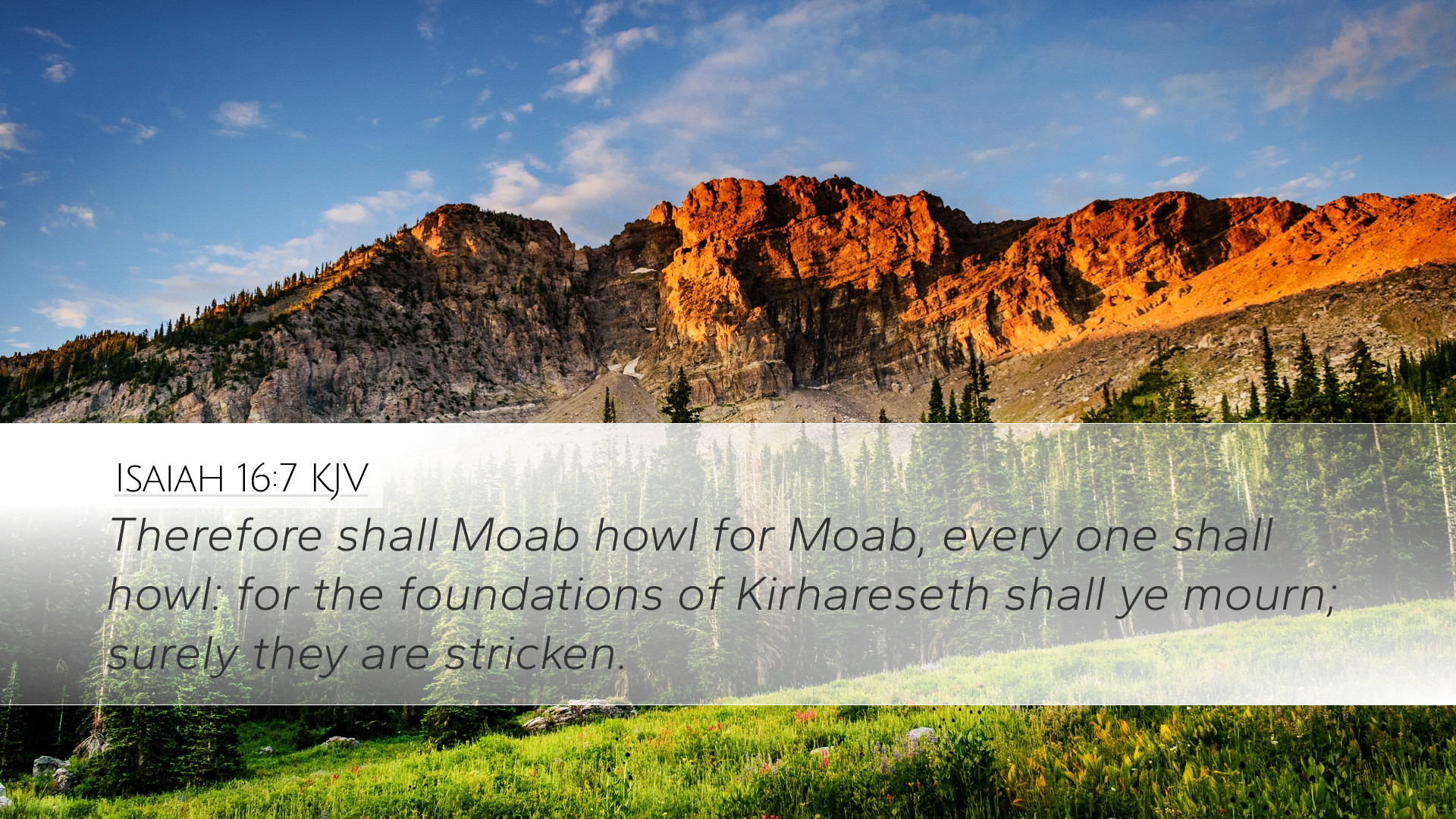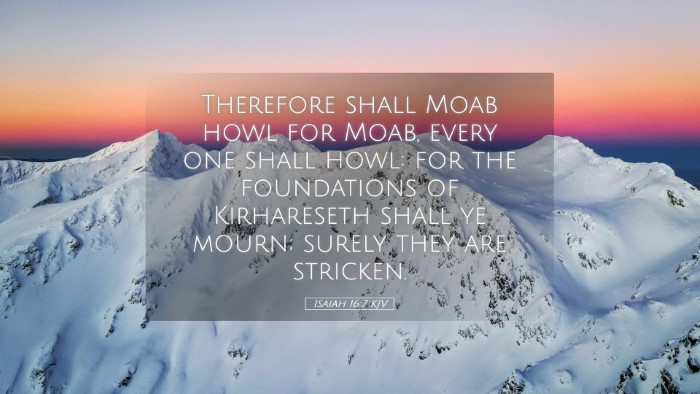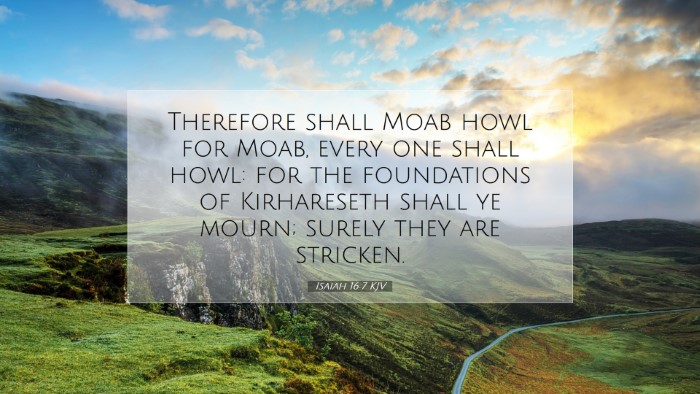Isaiah 16:7 - Commentary and Insights
Isaiah 16:7 states:
"Therefore shall Moab howl for Moab, every one shall howl: for the foundations of Kir-hareseth shall ye mourn; surely they are stricken." (KJV)
Contextual Background
The book of Isaiah is a profound collection of prophecies that covers various themes including judgment, hope, and the ultimate redemption of Israel. In Isaiah 16, the prophet turns his attention to Moab, a neighboring nation known for its pride and enmity toward Israel. This chapter expresses God’s judgment upon Moab due to their arrogance and sinful lifestyle.
Commentary Insights
Overview of Moab's Condition
According to Matthew Henry, Moab's lamentation is a reflection of their devastating loss and their impending doom. The howling signifies a deep despair that arises from the destruction of their stronghold, which is described as “Kir-hareseth.” This town was likely a symbol of their strength and autonomy.
The Nature of Mourning
Albert Barnes emphasizes the collective sorrow that would befall the Moabites. The verse portrays a scene where every citizen participates in mourning, revealing the profound impact of the impending destruction on their community. Such mourning is not merely for loss but for the recognition of their failures and God's judgment upon them.
Divine Judgment
Adam Clarke reinforces the understanding that this judgment serves as a warning for all nations who exhibit pride and arrogance against God’s purposes. Moab is held accountable for its actions, and its howling serves as a testament to the justice of God. The verse also highlights the idea of divine justice—no nation, regardless of its might, will escape the consequences of turning away from God.
Theological Implications
Human Pride and Divine Retribution
The mixture of pride and downfall is a recurring theme in scripture. Matthew Henry points out that Moab’s pride leads to their demise, illustrating the biblical principle that "pride goes before destruction," referring to Proverbs 16:18. This serves as a universal lesson for all societies today.
Hope Amidst Judgment
While the chapter opens with lament and sorrow, Albert Barnes suggests that it also contains a glimmer of hope for those who turn back to God. The howling of Moab can be seen as a call to repentance—a theme that resonates throughout the prophetic literature. God's judgments are not without purpose; they are aimed at leading individuals and nations back to righteousness.
The Role of Intercession
In the broader context of the chapter, the prophet Isaiah plays the role of an intercessor, which highlights the importance of prayer and advocacy for nations in despair. Adam Clarke discusses how Isaiah's heart is burdened for Moab and, through prayer, embodies a model for the faithful to follow.
Practical Applications for Believers
- Humility Before God: Believers are reminded to approach God with humility and recognize their dependence on Him.
- The Cost of Sin: Reflect on the consequences of unrepentant sin both personally and corporately, understanding that God is a righteous judge.
- Call to Repentance: Use the lamentations of Moab as an example to preach the necessity of repentance in the face of God’s judgment.
- Intercession for the Lost: Engage in prayer for communities and nations that are turning away from God, following Isaiah's example.
Conclusion
The profound sorrow expressed in Isaiah 16:7 serves as a sober reminder of the consequences of pride and the inevitability of divine justice. The collective howl of Moab signifies not just loss, but also the weight of sin and the need for repentance. This verse speaks across ages, urging today’s believers to embrace humility, seek reconciliation, and intercede for those in spiritual need.


